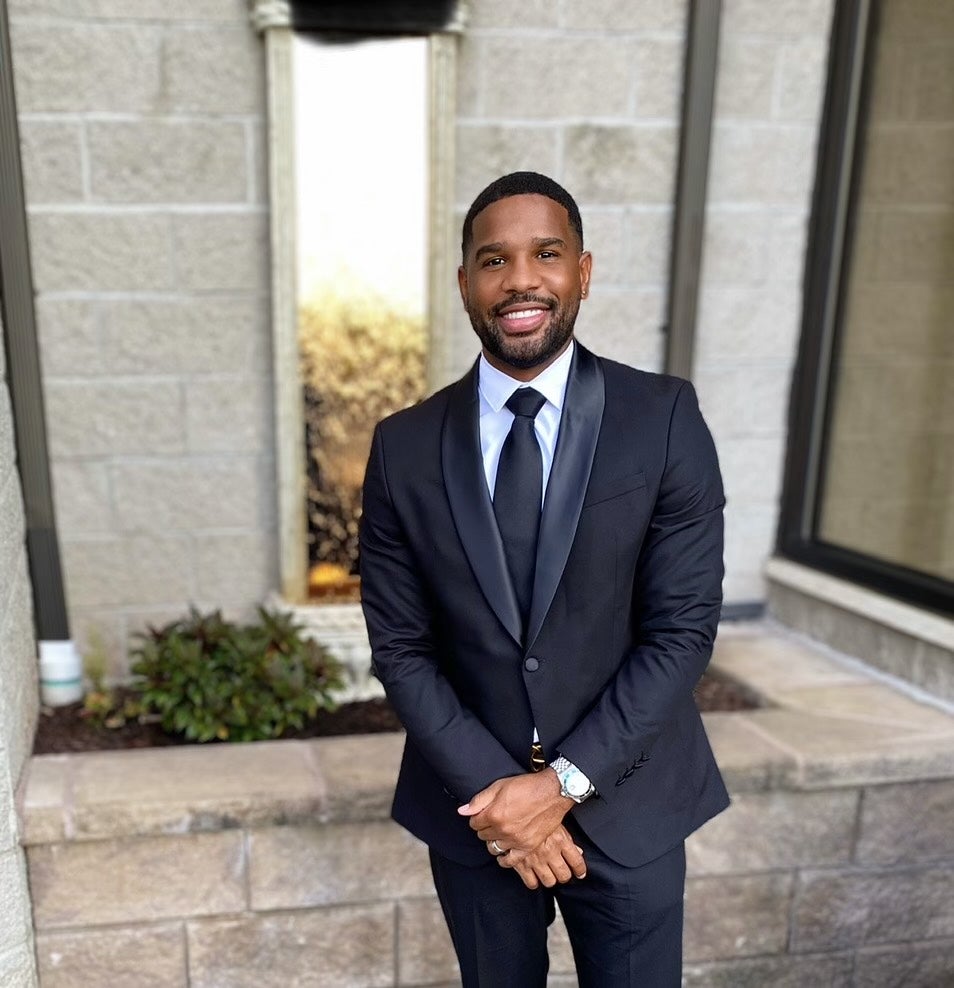In a world where cybersecurity plays an increasingly critical role, individuals like Christopher Grant are seizing the opportunity to make a difference. Grant, an active-duty military professional in the Medical Corps of the United States Air Force, discovered his passion for cybersecurity during the pandemic. Through Boise State University’s cyber operations and resilience (CORe) program, Grant found a flexible and comprehensive online platform to pursue his newfound interest while juggling his full-time military commitments and family life.
Discovering a Passion for Cybersecurity
As a medical professional, Grant developed the invaluable skill of building rapport with his patients. This led him to inquire about their military roles, which frequently highlighted the significance of cybersecurity. Grant explained, “One thing that kept popping up when I asked this question was cybersecurity. It started to pique my interest. I knew I wanted a career change but didn’t know what.” He further said, “During the pandemic, I started researching with time on my hands and staying at home. I like that cybersecurity is a problem-solving field. It gives you an opportunity to work with your hands and solve problems.”
His need for flexibility drove Grant to Boise State’s cyber operations and resilience program since it is online. With a demanding work schedule and frequent travel, he appreciated the program’s asynchronous nature, which allowed him to access course materials and engage in learning at his convenience. Grant said, “I was looking for an online program because I need flexibility. I work full-time, and I travel for work. I liked that I didn’t have a scheduled date and time to sit in a classroom. I looked through the courses and saw that they met my needs.” Before enrolling, Grant took the initiative to talk to a student already enrolled in the program to learn more about their experience, ultimately finding the CORe program a perfect fit.
Building a Strong Foundation

The CORe program gave Grant a solid understanding of the cybersecurity landscape and its various roles. One of the program’s most significant benefits for Grant was his newfound ability to engage in educated conversations about cybersecurity. Previously, job postings and articles on cyber threats were nearly impossible to decipher, but now Grant confidently comprehends and analyzes such information. The program’s comprehensive curriculum bridged the gap between theory and practical application, empowering Grant with the knowledge to decipher job descriptions and understand real-world cyber incidents.
Grant’s proactive approach extended beyond the CORe program. Recognizing the importance of CompTIA Sec+ certification for government jobs in his desired career path, he independently pursued and obtained the certification. Grant credits the foundation laid by the CORe program for enabling him to grasp the certification materials quickly. “I was able to pass the test after just two weeks of studying. It wasn’t that hard after everything I had already learned,” Grant commented.
Favorite Courses and Getting Hands On
One of Grant’s favorite courses within the CORe program was CPS 402 Offensive Security. Through this course, he gained hands-on experience with several networking tools, which introduced him to the idea of creating a home lab. He was enthusiastic to share, “The class introduced me to Wireshark. I ran it through my network. I didn’t quite know what I was looking at, but I could see everything on my network, like my TV, computers, phones, and other devices. I have an extra phone and laptop on my network that I try to get into. I try to see what my wife is doing on her computer. I started getting a better idea of everything. Sometimes I’m successful. Other times I am not.”
Although initially unfamiliar with the intricacies, Grant persevered and extended his learning by exploring Reddit threads and seeking further knowledge on network evidence and security.
Currently enrolled in the CPS 411 Networking class, Grant finds himself thinking about the challenges with his home lab. He notes, “The networking class I’m in right now is helping me understand why some of what I have tried hasn’t been working. It’s giving me a new perspective on how I can approach it.”
Bridging Theory and Application

Applying his newfound knowledge, Grant actively engaged in real-world scenarios and projects. During his capstone project, he collaborated with ISACA to design a tabletop exercise for a banking institution, simulating a phishing scam. Grant declared, “You might never be able to stop a phishing scam, but you can teach your employees to respond when one happens.” The objective was to evaluate the organization’s preparedness against similar threats and enhance employee response strategies. Grant’s involvement in this project allowed him to collaborate with other students and sharpen his problem-solving skills. It provided practical experience in cybersecurity risk management.
Grant’s personal life also reflects the impact of his cybersecurity education. He has improved his cyber hygiene, becoming more vigilant about threats and implementing measures to protect his family and himself. Moreover, he has extended his expertise to assist others, even aiding a neighbor and making security recommendations. Grant’s commitment to cybersecurity extends beyond the classroom, exemplifying his dedication to the field’s principles and practices.
Recommendation to Future Cybersecurity Students
Grant’s advice to aspiring students contemplating enrollment in the cyber operations program at Boise State University is unequivocal, “Do it. If you know it’s something you want… to make an impact on technology, do it.”
He encourages those enrolled in the program, “Learn what you can. Engage with outside resources. Listen to podcasts. If you don’t like listening to podcasts, then read something. If you don’t like reading, network, start talking to people. Find something that you think you’ll enjoy and get into it. If you want to be hands-on, get a computer and break stuff.”
He underscores the ever-growing demand for cybersecurity professionals, drawing a parallel between the importance of doctors in the medical field and the indispensability of cybersecurity experts in today’s digital landscape. “Cybersecurity is the new medical. It’s never going to go away. Just like people will always get sick, there will always be computer incidents. You’re always going to need your doctors. You are always going to need cyber professionals. The career field is going to keep growing.”
Looking Forward

Christopher Grant’s journey in the CORe program at Boise State University has proven transformative, solidifying his passion for cybersecurity and opening doors to new career possibilities. As he approaches the completion of his undergraduate degree in the summer of 2023, Christopher aims to pivot his military career toward cybersecurity or secure a position within the US government. With plans to obtain his CCNA certification, Grant embodies the drive, resilience and determination that propel aspiring cybersecurity professionals toward success.
Learn More About Cybersecurity Education
Boise State’s online Master of Science in Cyber Operations and Resilience helps professionals — like Christopher Grant — acquire the skills needed to succeed in the cyber operations field. Earn your degree from wherever you are with 100% online courses. Contact a student success coach to get started!
Contact a Student Success Coach
Attend a Live, Virtual Information Session
By Marissa Wilson